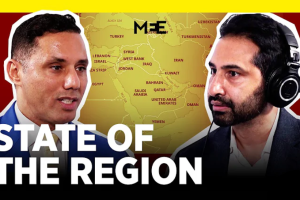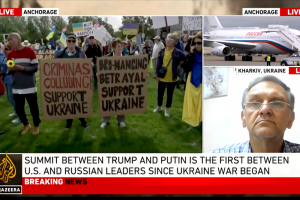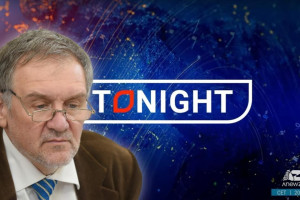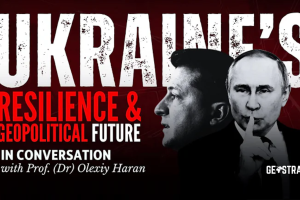Ukraine re-thinking its approach to Donbas war. Key things to know
After more than three years which have passed since the start of the war in eastern Ukraine, the Ukrainian government has come up with ideas about a new plan for de-occupation of Donbas and its reintegration into Ukraine.
Oleksandr Turchynov, the Secretary of Ukraine’s National Security and Defense Council, stressed on 13 June that Ukraine has developed a draft new strategy on Donbas in order to protect the country from Russian aggression. In his opinion, the so-called “Anti-Terror Operation” (ATO), an expression used until now by Ukrainian authorities in its official documents to designate the war in Eastern Ukraine, is no longer a viable option in its current shape.
Turchynov suggested several important changes.
For instance, he says that Ukraine should officially designate non-controlled Donbas lands as territories “under occupation.”
But he also says Ukrainian top authorities have to receive more room for manoever to ensure efficient policy under war conditions and the future de-occupation of Donbas.
He notes that current legislative provisions entitle Ukrainian authorities, including the president, to use armed forces only in the cases of an “anti-terror operation” or an official declaration of war – but none of the cases is applicable today. He suggests, therefore, that new legislation should entitle Ukraine’s President to use Ukraine’s armed forces and other military formations to counteract against Russia’s aggression – which will move Ukraine away from “limited options” of ATO format. Other top-rank Ukrainian officials — namely President Poroshenko and Verkhovna Rada Speaker Parubiy — publicly supported Turchynov.
Ruslan Kermach, an analyst at Ilko Kucheriv Democratic Initiatives Foundation, stressed that Ukrainian society has been demanding such changes for three years already. “It corresponds to the government’s political obligations. Politicians are trying to fulfill their promises or at least to show their intentions toward the occupied territories,” Kermach argued, referring to numerous doubts why the concept “anti-terror operation” is used when Ukraine is facing a genuine Russian-provoked war and military aggression.
Turchynov’s idea sparked a public discussion, but there was little information on what the new plan basically entitles. However, on 21 June Hromadske published a draft of the law called “State policy on restoring Ukrainian sovereignty in the currently occupied territories in the Donetsk and Luhansk regions.”
This draft is set to “create the necessary legal and organizational conditions for restoring Ukraine’s territorial integrity in the Donetsk and Luhansk oblasts,” as stated in the bill itself. It envisions the following concrete steps:
- Determining the legal preconditions for conducting military operations in the war area in Donbas;
- Creating a crisis center in charge for policy with regard to Donetsk and Luhansk oblasts;
- Acknowledging that the territories of Donbas uncontrolled by the government are “occupied” lands. At the same time, occupied territories should be regulated by Ukrainian laws, as “it is an integral part of Ukraine, which is subject to the Constitution and laws of Ukraine,” the draft says.
At the same time, the document does not outline the means that will be used to restore Ukraine’s sovereignty over Donbas, Hromadske underlines.
Olexiy Haran, a Head of Research at Ilko Kucheriv Democratic Initiatives Foundation, stressed in a conversation with UkraineWorld that it is important to introduce martial law at the territories close to the frontline. The new plan makes such a move possible, Haran argues. In comparison, now the martial law can be introduced only for the regions or country as a whole, which is not flexible enough, Haran argues.
He also notes that the new bill finally introduces the correct terms to describe the current situation, as uncontrolled Donbas territories have been occupied for a long time by Russian and pro-Russian forces, and the ATO ceased to exist in its primary form when Russia’s regular troops entered Donbas.
Haran also does not consider the new regulations to contradict to Ukraine’s commitments under the Minsk agreements. “For sure, Russian propaganda will put it that way” (i.e. that new norms will contradict Minsk deals), but “Minsk agreements envision step-by-step settlement of the conflict; security comes first, and only afterward the political part follows,” the expert underlined. According to Haran, the process has been frozen at the security stage, and things do not move forward beyond basic security challenges like ensuring viable cease-fire. Therefore, political matters are premature until the sustainable ceasefire is achieved on Donbas, he says.
The draft law, on the contrary, might drive the Minsk process from the deadlock, Haran believes.








